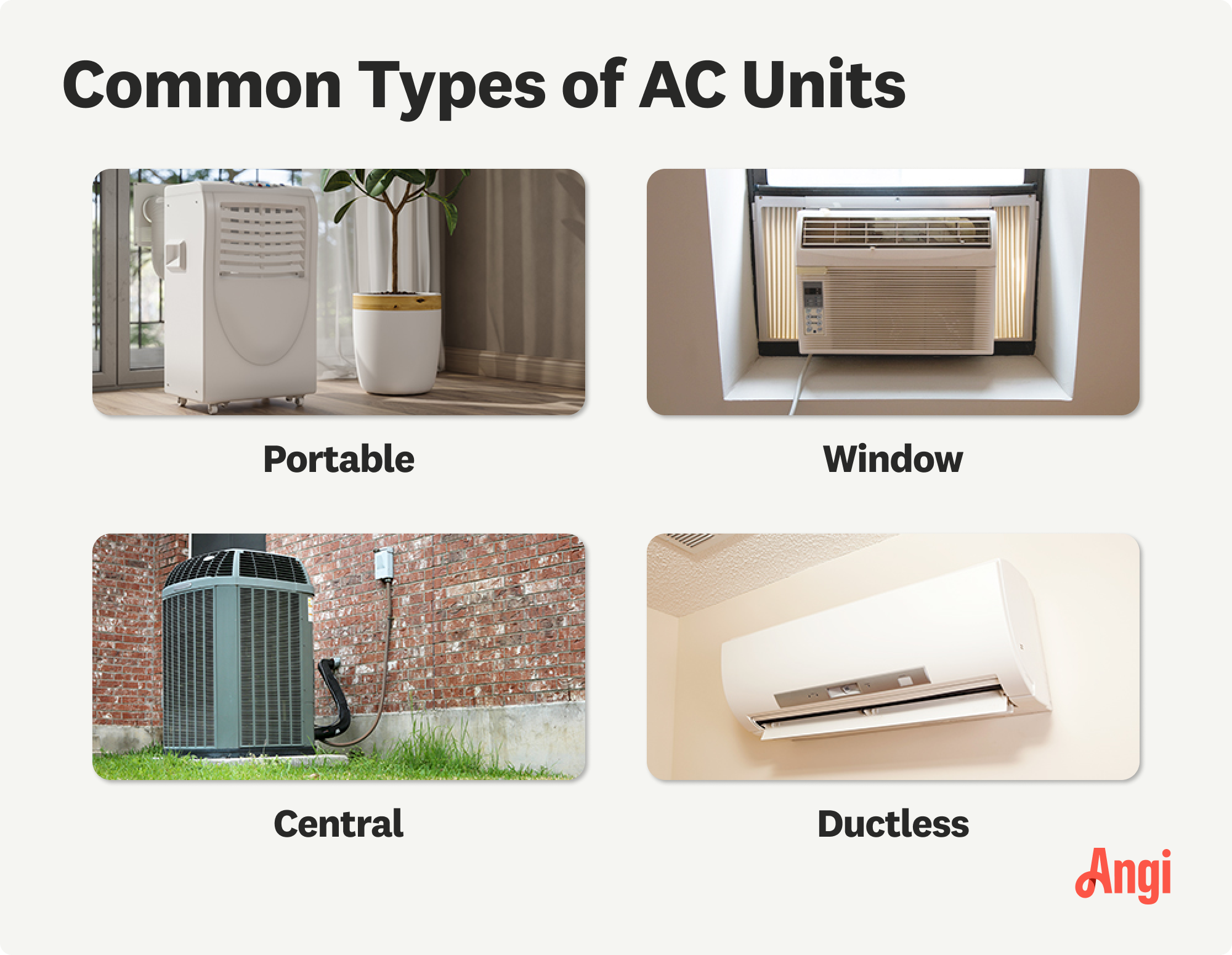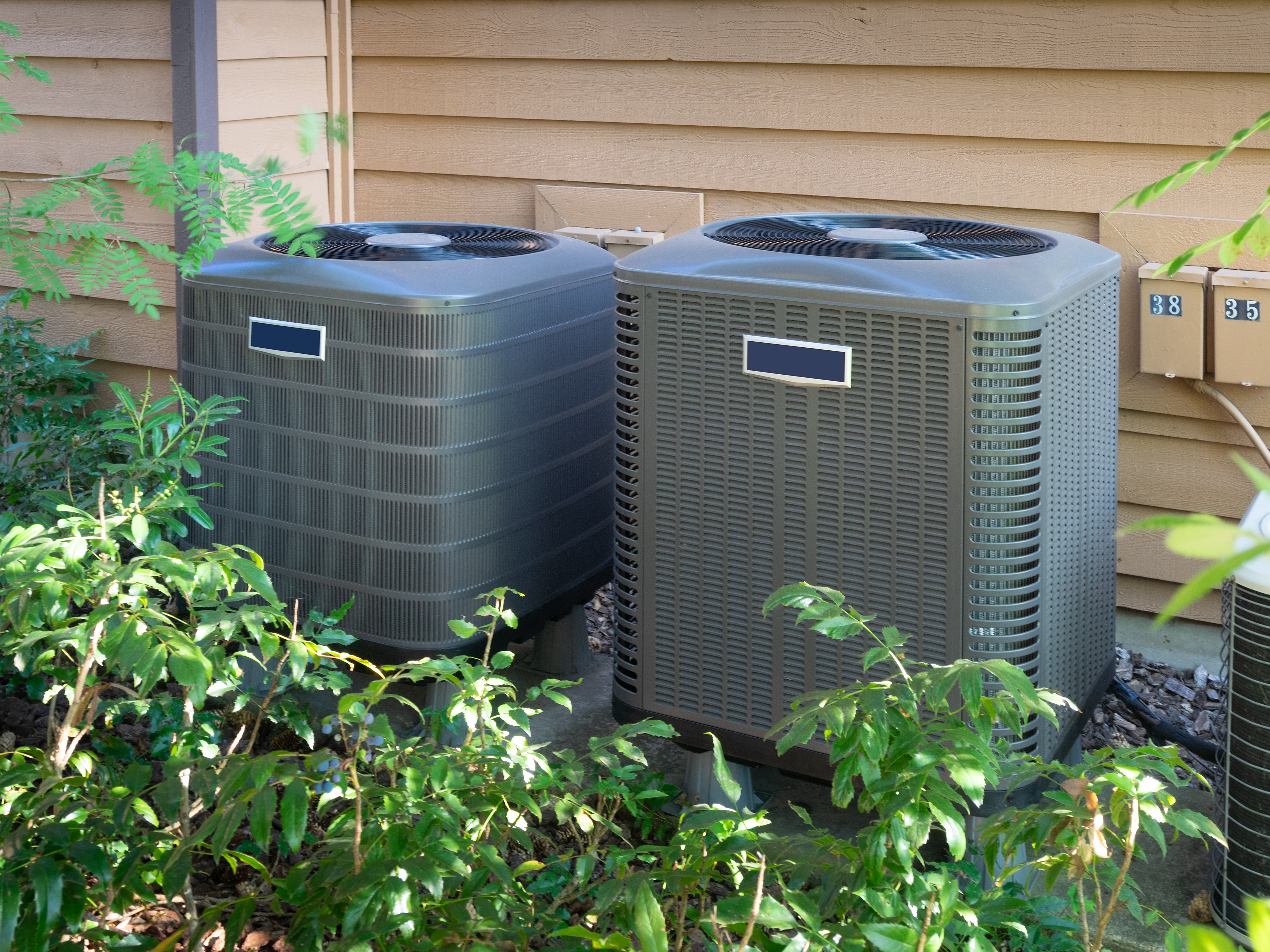
Whole-house humidifier costs vary based on the type and size of the unit, along with other factors. The price might be worth it for people living in dry regions.
Heating and air conditioning service costs depend on your project and location. Check with a local pro for your specific job.
AC replacement costs in Seattle, Washington, depend on a few factors, including the AC unit’s type and size.
On average, you’ll spend between $5,098 and $9,785 on a new AC unit in Seattle.
Most homeowners in the city pay $7,377 for a new air conditioner.
When budgeting for AC replacement in Seattle, you should also consider permitting fees, sales tax, and labor.
The average AC replacement cost in Seattle, Washington, is $7,377, but it commonly ranges from $5,098 to $9,785. The main cost factors for this project are the type, size, and efficiency of the AC unit, as well as labor. If you’re ready to invest in a new AC to keep cool through the Seattle summer, here’s what will impact the final price.
The specifics of your AC unit—including its type, size, and efficiency rating—will have a big impact on your overall costs. Here’s how.

There are quite a few types of air conditioners on the market in Seattle, ranging from small units that cool a single room to whole-home cooling systems. As you might expect, these AC units come in a range of prices, too.
If you’re on a budget, you could consider a window AC unit, which starts around $150 and is suitable for apartments or vintage homes without ductwork (like a Seattle box house or a bungalow). For larger properties with existing air ducts, central AC would be a better option—but with prices starting at $2,500, it’s a much bigger investment.
| Type of AC Unit | Average Unit Cost | Pros | Cons |
|---|---|---|---|
| Portable unit | $100–$500 | Easy installation | Only cools one room at a time |
| Window unit | $150–$800 | Low-cost | Requires window space |
| Ductless split system | $2,000–$3,000 | Energy efficient | Expensive to purchase and install |
| Central | $2,500–$4,500 | Best option for whole-house cooling | Must connect to ductwork |
The size of your AC unit—which is measured in tons or British Thermal Units (BTUs)—also factors into your costs. You’ll pay more for larger AC units, which can cool more space than smaller models. For example, a 1.5-ton central AC unit could cost as little as $1,300, while the starting price for a 4-ton unit is double that.
To determine the best size AC unit for your Seattle home, you’ll need to conduct a Manual J calculation. This involves measuring your home’s square footage, evaluating the quality of your ductwork and insulation, and adding up the number of windows in your house. It’s a complex job, so it’s best to get help from an HVAC pro.
| AC Tonnage | BTUs | Average Unit Cost |
|---|---|---|
| 1.5 | 18,000 | $1,300–$4,000 |
| 2 | 24,000 | $1,500–$5,000 |
| 3 | 36,000 | $2,000–$5,500 |
| 4 | 48,000 | $2,600–$6,200 |
| 5 | 60,000 | $2,800–$6,80 |
Your AC unit’s energy efficiency—or how efficiently it uses electricity to cool your home—also affects your AC replacement costs. To understand how efficient a particular AC unit is, check its Seasonal Energy Efficiency Ratio (SEER) rating. New AC units should also have a SEER2 rating, which is an updated version of the SEER rating system.
The higher an AC unit’s SEER or SEER2 rating, the more energy-efficient it is. However, these higher-efficiency models also cost more than lower-efficiency units. In Seattle, the minimum SEER rating for new air conditioners is 14, while the minimum SEER2 rating is 13.4.

An AC installer in Seattle, Washington, may charge higher rates if your part of your AC system is in a tight spot, on your roof, or in another hard-to-access location. In situations like these, the contractor often needs to spend more time and use additional equipment to pull out your old AC unit and install the new one—which can result in steeper labor prices.
When it comes to AC replacement costs in Seattle, the equipment is only one piece of the puzzle. You’ll also need to consider the price of labor, permits, taxes, and more.
In Seattle, HVAC professionals must be licensed to “install, repair, or alter refrigeration or air conditioner equipment.” They should also be certified by the Environmental Protection Agency (EPA) to work with refrigerants. Before hiring someone to replace your AC in Seattle, make sure they have these qualifications.
AC replacement jobs in Seattle require a mechanical permit and a refrigeration permit. As a homeowner, you can pull the mechanical permit, but you’ll need a licensed refrigeration professional to obtain the refrigeration permit. Your permit fee will depend on a few factors, including the size of your AC unit and the value of the work.
Seattle’s combined sales tax rate is 10.35%—the highest rate among major cities in the U.S., according to the Tax Foundation. Keep this in mind when you’re planning your AC replacement budget. If you choose a $3,500 central AC unit, you’ll pay just over $362 in sales tax on the purchase.
If you install an air-source heat pump to serve as your home’s cooling system, you may qualify for a rebate from Seattle City Light. Discounts vary from $300 to $600, depending on the unit’s size and efficiency rating.
Heat pumps both heat and cool your home and can be ducted or ductless. They work similarly to air conditioners, but heat pumps can reverse the cooling process and also warm your home.
Since Seattle summers tend to be fairly comfortable weather-wise, there hasn’t always been a huge need for air conditioning in the Emerald City. (Just a couple of years ago, it was the least air-conditioned major metro area in the U.S., according to the Seattle Times.)
However, more homeowners here are installing AC—and now, a majority of Seattle-area households have air conditioning. For many homebuyers, having a working HVAC system (with cooling and heating) is an attractive prospect. In fact, a new HVAC system can increase your property’s value by 5% to 7%.
Home is the most important place on earth, which is why Angi has helped more than 150 million homeowners transform their houses into homes they adore. To help homeowners with their next project, Angi provides readers with the most accurate cost data and upholds strict editorial standards. We survey real Angi customers about their project costs to develop the pricing data you see, so you can make the best decisions for you and your home. We pair this data with research from reputable sources, including the U.S. Bureau of Labor Statistics, academic journals, market studies, and interviews with industry experts—all to ensure our prices reflect real-world projects.
Want to help us improve our cost data? Send us a recent project quote to [email protected]. Quotes and personal information will not be shared publicly.
From average costs to expert advice, get all the answers you need to get your job done.

Whole-house humidifier costs vary based on the type and size of the unit, along with other factors. The price might be worth it for people living in dry regions.

If your furnace is malfunctioning, it could be a faulty control board. Find out what a furnace control board replacement costs for parts, labor, and more.

Furnace cleaning is an essential annual chore to keep your home safe. Find out common furnace cleaning costs by type and size of furnace with this guide.

When you notice hot and cold zones in your home, it pays to learn how to balance airflow in your ducts to even out the temperature.

Learning how to secure a window AC unit will avoid personal injury and damage to your home. It will also protect against theft and break-ins.

You’ll need to get creative if you want to run your portable AC in a windowless room. Here’s how to vent a portable air conditioner without a window.